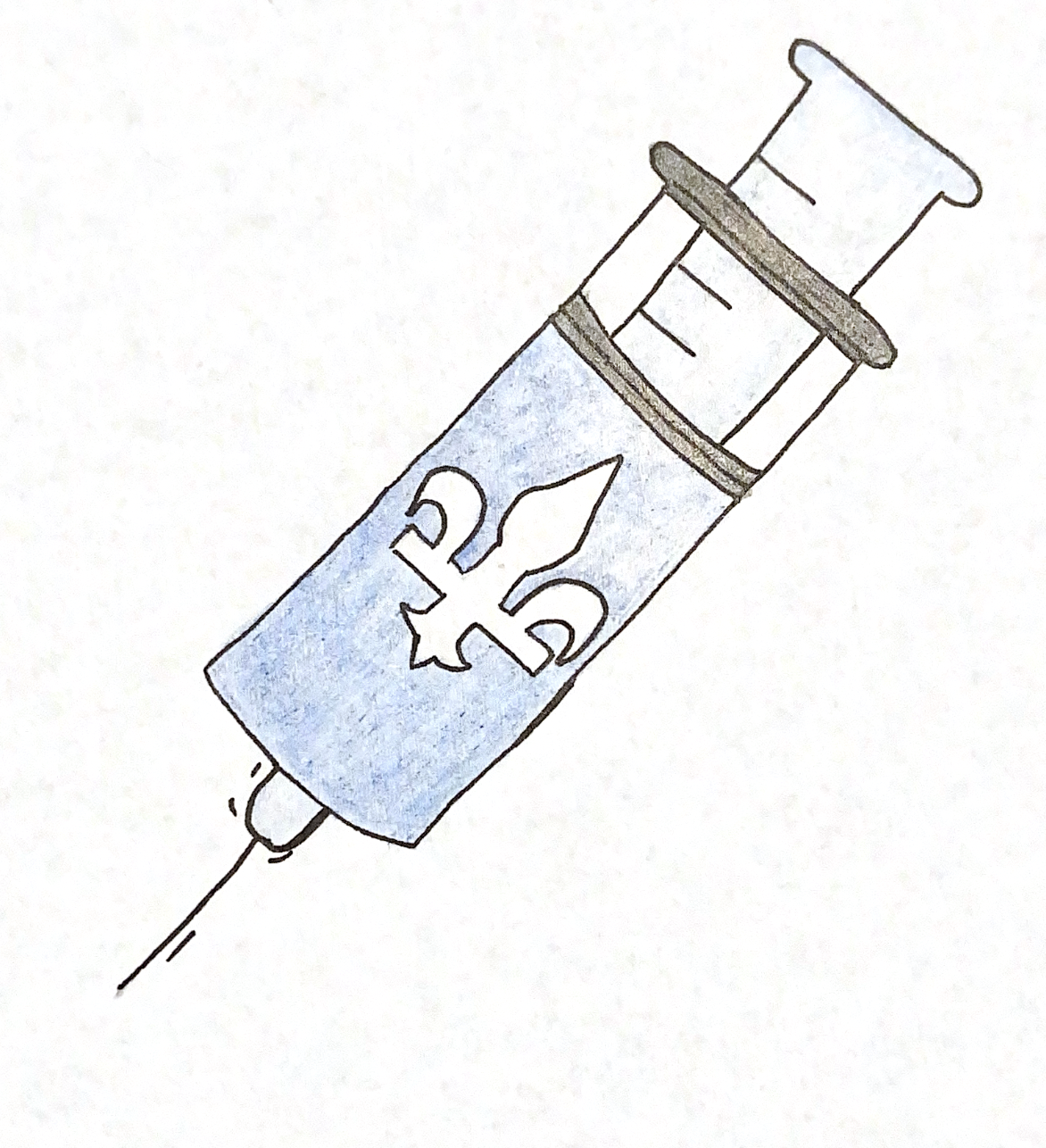Quebec’s health ministry has announced that starting this fall, coronavirus (COVID-19) vaccines will no longer be universally free to the public. Instead, free vaccines will only be available to residents who are 65 and older, those who are immunocompromised or have chronic illnesses, residents of long-term care or private seniors’ homes, health care workers, adults in remote regions, and pregnant individuals. Those who do not qualify for a free vaccine will have to pay between $150 CAD and $180 CAD at a pharmacy in order to receive a COVID-19 shot.
McGill’s Media Relations Office (MRO) clarified that McGill’s Student Wellness Hub does not provide COVID-19 vaccines—free or paid—to students, in a written statement to The Tribune.
“While the Hub does not administer COVID-19 vaccines to the general student population, we recommend accessing vaccines through local pharmacies or public/private health clinics,” the MRO wrote. “Supporting students in staying up to date with their vaccinations and helping them navigate off-campus resources is a key part of the Hub healthcare professionals’ mandate.”
The SSMU Studentcare health insurance plan generally does not cover unprescribed COVID-19 vaccines, as these costs are not considered an eligible expense by provider Desjardins Insurance. However, Studentcare emphasized that this may not always be the case in a written statement to The Tribune.
“If the vaccine is prescribed by a physician and dispensed by a pharmacist, students may submit the claim to Desjardins Insurance for review, subject to standard plan limitations,” a Member Services Agent with Studentcare wrote.
In an interview with The Tribune, Dr. Anne Gatignol, a virology and molecular biology professor in McGill’s Department of Medicine, described the current risks and realities of COVID-19 on the university’s campus.
“By now, most adults have had COVID, and we have reached some kind of collective immunity,” Gatignol stated. “[Vaccines are] important for elderly or immunocompromised persons, people with chronic diseases, [and] health care workers. [….] For all others, the risk is much lower. [….] The Quebec health authorities have probably evaluated the costs [and] benefits in their decision. Nevertheless, I encourage those who want and can afford it to get the vaccine. They will protect themselves and will contribute to protecting others.”
Kasidy Xu, a final-year Nursing student at McGill, provided similar advice to Dr. Gatignol’s to university students concerned about COVID-19 vaccination in an interview with The Tribune.
“For the most part, [as] university students […] are mostly young in age, […] [they] are not as [susceptible to COVID-19] as older adults or immunocompromised people,” Xu explained. “They were [more at] risk [in] the beginning of the COVID-19 pandemic [due to] the close proximity they were [in] with [other] students [and] people. [However], it is important for everyone [to] get the COVID vaccine if they can, [as] the COVID strains are changing so much [that] even if you get [immunised] now, the strains will change within a year and you will need to receive a new vaccination in order to be protected.”
Quebec’s new policy to pull back universal access to free COVID-19 vaccines follows a decision Alberta Health Services made in June 2025 to start charging Albertans who are not elderly, immunocompromised, or health care workers for COVID-19 shots. Alberta’s provincial government cited the high costs and vaccine waste keeping COVID-19 shots free incurred, after the federal Public Health Agency of Canada transferred responsibility for procuring the vaccines to provincial health bodies in January 2025. Quebec made their decision along similar lines of reasoning, citing cost efficiency after Quebec’s immunisation committee, the Institut national de santé publique du Québec, recommended prioritising vaccination for people aged 75 and older.
COVID-19 and flu vaccines can be booked together through Quebec’s online health booking platform, Clic Santé, or by calling 1-877-644-4545. Coronavirus vaccines will remain available in Quebec at pharmacies, local community services centres, and through other healthcare providers.









